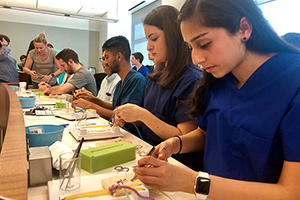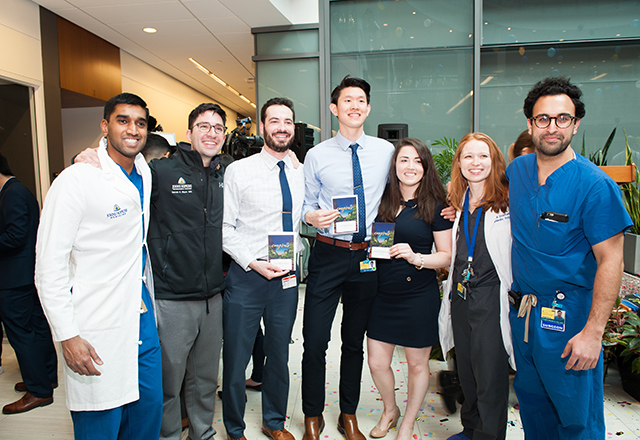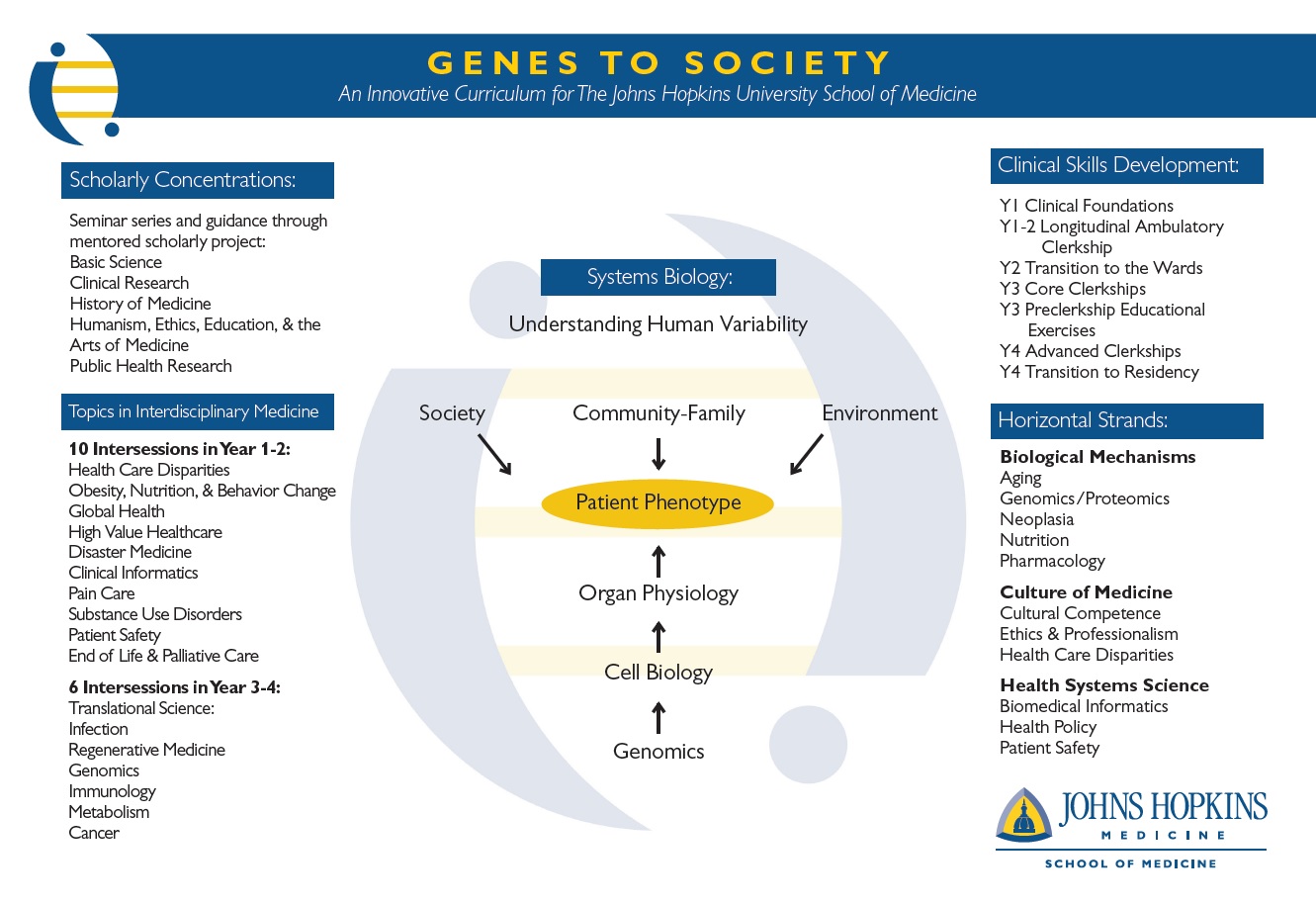At its founding, the Johns Hopkins University School of Medicine changed the face of medical education throughout the United States and beyond. Today, Johns Hopkins has again pushed the study of medicine forward with the introduction of the Johns Hopkins Genes to Society curriculum. The Genes to Society curriculum presents a model of health and disease based in the principles of adaptation to the environment, variability of the genotype and stratification of risk, rather than simply a dichotomous view of "normal human biology (health)" and "abnormal physiology (disease)."
Genes to Society 101 | A Brief Overview
Grounded in our ever-expanding understanding of the human genome, the current Johns Hopkins Genes to Society curriculum presents a new model of health and disease based on the wide range of factors that influence a patient's disease presentation, from the cell level and genetics, to behavioral, environmental and societal influences.





